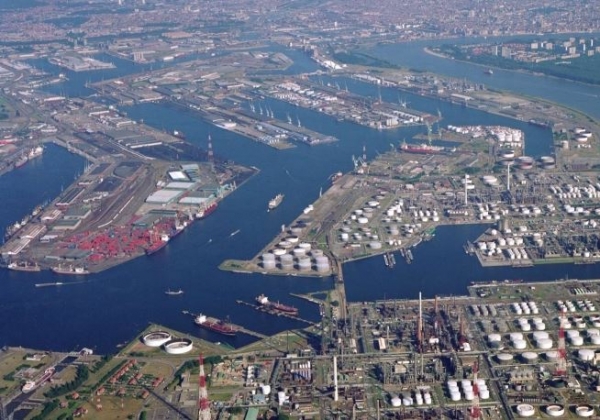PortEconomics co-director Theo Notteboom and Indra Vonck (University of Antwerp) published a study commissioned by ING Bank on the strategic evaluation of the Belgian port sector and accompanying services. The goal of this study is twofold. Next to analysing the added value based of a classical economic analysis the study defines and measures the strategic value of the Belgian port network with all its accompanying services. Strategic value is defined as: “The economic value of the ports and the logistical network plus the added value created by the enlargement of the competitive position of the cluster or region by adding knowledge, scale network effects and connectivity”.
There are multiple strategic evaluation techniques available to assess strategic values. These techniques are most often used to make the correct decisions during moments of change. Although these methods permit for a selection of strategy they do not always offer a possibility to quantify the existing strategic value of a company, industry or region. Amongst them we find the reversed PESTLE analysis, which allows for the incorporation of all qualitative factors, the classic SWOT analysis, a benchmark analysis based on indicators, Porter’s Diamond framework, a technique comparable to the PESTLE, and a value chain analysis, a methodology which allows to pinpoint the areas of biggest value to a system.
The strategic importance of ports goes beyond the basic economic impact of all aggregated companies. A full assessment of the strategic value takes into account all factors involved in the value creation of a port. In the study, the authors used three different approaches to assess the strategic value of the port network. Firstly, they estimated qualitative factors in line with the estimation of the strategic value of Rotterdam based on the assumption that the ‘higher added value of the remainder of the economy induced by the port(s) is 1%’. Secondly, they assessed the amount of economic activity which is prone to relocation based on the connection with the ports using a hinterland matrix. Thirdly, they argued that by losing ports, all the cargo for national consumption or generated by national production has to pass foreign ports such as Rotterdam, Calais or Hamburg which will cause a price increase for import and export cargo. Following these approaches, the total strategic value of the Belgian ports is estimated at 45 billion euro. This is 60% more than the classic economic impact (i.e. the direct plus indirect value added) as estimated by the National bank of Belgium.
For enquiries on the report, please contact [email protected]












